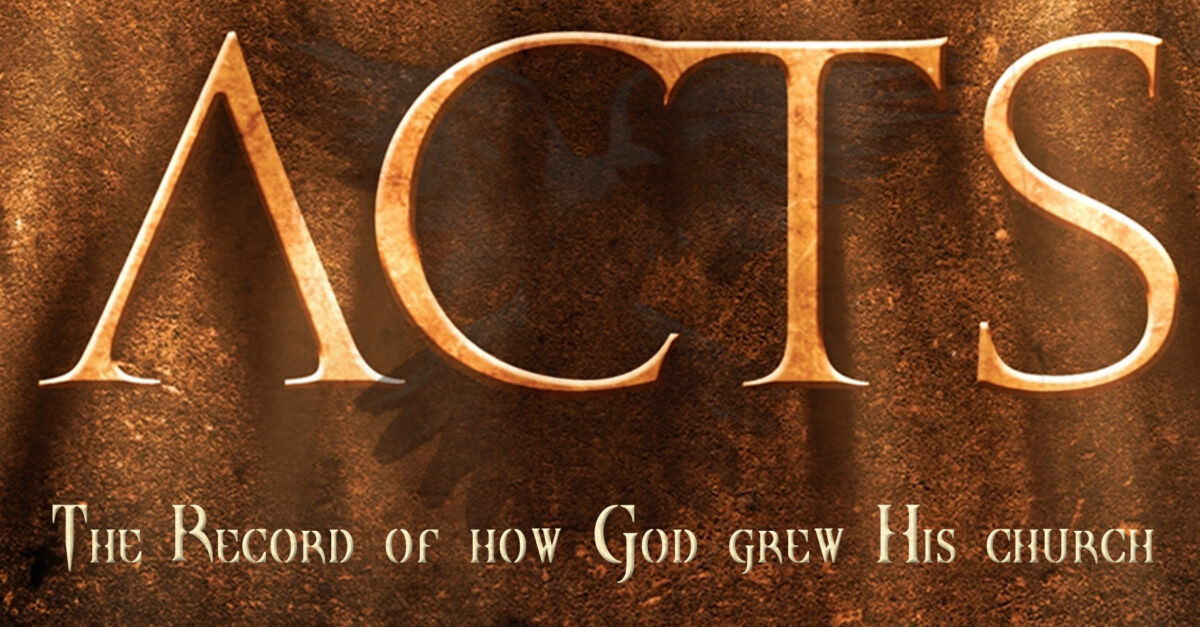Acts 16:1-5
v1 Paul went to Derbe and then he went to Lystra. A Christian called Timothy lived there. Timothy’s mother was a Jewish Christian. But his father was Greek. v2 The believers at Lystra and Iconium said many good things about Timothy. v3 Paul wanted Timothy to travel with him. So, he circumcised Timothy. He did this because of the attitude that the Jews had there. They all knew that Timothy’s father was Greek. v4 Paul and his helpers went through the towns. And they told the believers what the apostles and leaders in Jerusalem had decided. They told them to obey those rules. v5 So, the Christians became stronger in the faith and more people joined the churches daily.
Verses 1-3 Luke introduces Timothy. Timothy became a chief helper of Paul. We know that Timothy’s mother was called Eunice (2 Timothy 1:5). She probably became a believer when Paul came to Lystra before. That was two or three years earlier. Timothy was young (1 Timothy 4:12). But the believers saw that he had a good character. His father was a Gentile. So, Timothy had received a Greek education. But he had also learned the Jewish scriptures (2 Timothy 3:15). It was easy for him to mix with both Jews and Gentiles. He could mix with both because he understood both their cultures. This would be very useful later when he preached in different places.
We may want to know why Paul circumcised Timothy. When a Jew married a pagan, their children were Jewish. That is what the Jews said. So, the Jews considered that Timothy was a Jew. That was because he had a Jewish mother. He should have received circumcision when he was a baby. Perhaps his father stopped this. Paul realised that Timothy would be an excellent helper. But Paul did not want to upset the other Jewish Christians. He circumcised Timothy so that they would accept him (Timothy). This did not mean that Paul wanted Gentile Christians to receive circumcision. He opposed this (Galatians 2:3-5). But Timothy was a special case because he had a Jewish mother.
Verses 4-5 Paul and his helpers told many more Christians about the four rules. He taught them in a way that made their faith stronger.
Luke’s report about how the gospel spread has 6 parts. The 4th part ends here in verse 5. The next part is about how Paul and his helpers took the good news into Europe.
Paul’s vision about a man from Macedonia, 16:6-10
v6 Paul and his companions went through Phrygia and Galatia. But the Holy Spirit would not let them preach the message in Asia. v7 They came to the border of Mysia. Then they tried to enter Bithynia. But the Spirit of Jesus would not let them do that. v8 So, they travelled through (or by) Mysia. And they went on to Troas. v9 That night, Paul had a vision. In the vision, he saw a man from Macedonia. The man was standing there. ‘Come over to Macedonia and help us!’ said the man. v10 After Paul had this vision, we got ready. We left for Macedonia immediately. We decided that God had called us to preach the gospel there.
Verses 6-8 These verses show that Paul was always listening to the Holy Spirit. He planned missionary journeys carefully. But he was willing to change his plans, if God told him to do it. Paul probably wanted to continue west to Ephesus city. But the Holy Spirit stopped them. We do not know how he stopped them. It may have been by means of a vision. Or it may have been by means of a prophet’s words in Lystra.
So, Paul traveled north instead. In the province called Bithynia, there were Greek cities and Jewish towns. But the Spirit of Jesus would not let them go there. The ‘Spirit of Jesus’ is another name for the Holy Spirit. Paul and Silas were both prophets. Perhaps Jesus himself had spoken by means of them about this. Perhaps that is why Luke calls the Holy Spirit ‘the Spirit of Jesus’ here.
So, ‘they traveled through (or by) Mysia’ (verse 8). The Greek word here can mean either through or by. So, this might mean that they went round Mysia. But they probably entered it in order to reach Troas. Perhaps they passed through Mysia but they did not preach there.
Verses 9-10 Troas was an important port. People went there when they traveled between Asia and Macedonia. The man in the vision asked for help. He wanted spiritual help. Paul knew that this message was from God. So, he prepared to go where God had said. It was not Paul’s plan to go to Macedonia. But it was God’s plan.
In verse 10, Luke says that ‘we’ did things, instead of ‘he’ or ‘they’. This is the first passage where Luke does that in Acts. So, Luke is now writing about events that he saw himself. So, we know that Luke went with Paul on this journey. Perhaps Luke wrote a diary about it. He may have used this diary when he wrote the passages with ‘we’.
